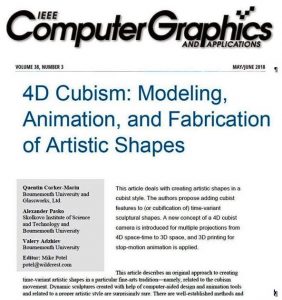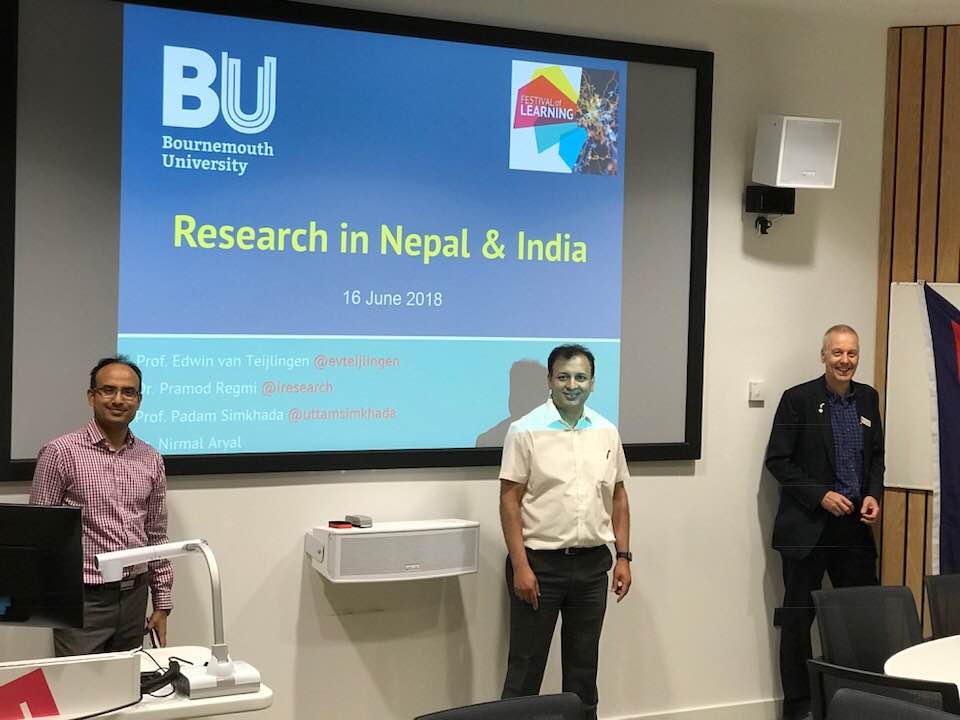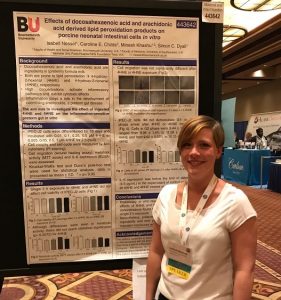You can’t have missed this
Dominic Raab has been appointed as the new Brexit Secretary. Previously he was the Minister of State for Housing, Communities and Local Government (Kit Malthouse (North West Hampshire) now holds the Housing role). Dominic’s political interests are civil liberties, human rights, industrial relations, and the economy. Alongside Dominic Chris Heaton-Harris MP (Daventry) has been appointed as Parliamentary Under-Secretary of State at the Department for Exiting the European Union.
Boris Johnson resigned as Secretary of State for the Foreign and Commonwealth Office on Monday (Politics Home covered his resignation). Local MP Conor Burns (Bournemouth West) has resigned his position as Parliamentary Private Secretary to Boris Johnson at the Foreign and Commonwealth Office. Boris is replaced by Jeremy Hunt.
As the reshuffle ripples outwards Matt Hancock (previously digital) has been appointed as Secretary of State for Health and Social Care, with Jeremy Wright QC appointed as Secretary of State for Digital, Culture, Media and Sport. Geoffrey Cox QC MP (Torridge and West Devon) has been appointed as Attorney General.
Dame Martina Milburn has been confirmed as the Chair of the Social Mobility Commission. She is expected to set out her priorities and strategy for improving the impact of the Commission and championing social justice shortly. Her remit states she should avoid duplicating the work of other organisations and think tanks. The Dame is known to support vocational education and apprenticeships.
Brexit – There has been no escaping Brexit this week with the high profile resignations and the Brexit white paper. UUK International’s response to the white paper to focus on research:
- “It is encouraging to see that the importance of attracting world class researchers and international students has been acknowledged. We also welcome the UK’s proposed participation in Horizon Europe and the next Erasmus programme, which will benefit EU member states as well as the UK.
- We urge the government and the EU to engage and reach agreement on these matters as quickly as possible to provide the certainty that university students and staff need on opportunities to study abroad and collaborate in research.” (Vivienne Stern, UUK International)
MillionPlus weren’t quite so magnanimous:
- “The labour mobility proposals in the White Paper indicate a clearer direction of travel from the government but reference to researcher mobility with the EU as ‘temporary’ and without any supporting detail will not reassure many. Maintaining the UK’s world class strengths in science and research will require a comprehensive and ongoing agreement concerning the mobility of academic and research staff. Other key concerns have gone unanswered in the White Paper, such as reciprocal agreement on university fees for EU students post-Brexit. This is a matter that should be a priority for the government, not an also-ran issue.
- With so much time already lost, it will be challenging for agreement to be reached on the final shape of Brexit in time for the European Council in October. Any delay beyond this would be deeply problematic and expose the UK to a greater risk of ‘crashing out’ of the EU in March 2019. Such an eventuality could bring hugely damaging consequences for UK universities, their staff and students.” (Greg Walker, MillionPlus)
The Creative Industries Federation stated:
- “…we need to see stronger commitments on participation in Creative Europe and broadcasting, and more details on intellectual property, the definition of “major events” for the temporary movement of goods, the mobility framework and future immigration rules. It is one thing to permit people to come to the UK, but it is quite another to ensure they are valued and able to contribute to our creative industries.”
There was also an immigration parliamentary question focussed on the Creative Industries this week:
Q – Dr Lisa Cameron: To ask the Secretary of State for the Home Department, if he will take steps as part of the negotiations for the UK leaving the EU to seek the creation of a visa system between the UK and EU countries to meet the needs of the creative sector.
A – Caroline Nokes:
- The Government is considering a range of options for the future immigration system. We will build a comprehensive picture of the needs and interests of all parts of the UK, including different sectors, businesses and communities, and look to develop a system that works for all. We will make decisions on the future immigration system based on evidence and engagement. That is why we have asked the independent Migration Advisory Committee to advise on the economic and social impacts of the UK’s exit from the EU. When building the new system, various aspects including the creative sector will be taken into account, to ensure the future immigration system works for sectors. We will set out proposals later this year.
This week’s Brexit/Research parliamentary question is:
Q – Tom Brake: To ask the Secretary of State for Business, Energy and Industrial Strategy, whether UK (a) companies and (b) institutions will be able to participate in EU research and development projects after 2020.
A – Sam Gyimah:
- As part of our future partnership with the EU, the UK will look to establish an ambitious future agreement on science and innovation that ensures the valuable research links between us continue to grow.
- The UK would like to participate in EU research and development projects after 2020 and would like the option to fully associate to the excellence-based European research and innovation programmes, including Horizon Europe (the successor to Horizon 2020) and Euratom Research and Training.
Such an association would involve an appropriate UK financial contribution linked to a suitable level of influence in line with the contribution and benefits the UK brings. The UK looks forward to discussing the detail of any future UK participation with the European Commission.
The Government also published their response to the Science and Technology Committee’s second report into Brexit, Science and Innovation this week.
Admissions
UCAS published their analysis of the national picture of full-time undergraduate applications made by end June 2018 (2018 cycle entrants). Key points:
- In England, a record 38.1% of the 18 year old population have applied (0.2% up on this point in 2017). This is despite a 2.3% drop in total number of 18 year olds in England.
- In Northern Ireland and Scotland the applications have dropped slights and Wales is also up by 0.2% against this point in 2017.
- However, across all ages, there are now 511,460 UK applicants, a 3% decline on this point in 2017. Overall applicants are down across all of England, Northern Ireland, Scotland and Wales. In England there were 421,610 applicants (a decrease of 4%).
- The number of EU applicants has risen 2% to 50,130.
- There are a record number of students from outside the EU – 75,380 students applied to study (an increase of 6%).
- Overall, 636,960 people applied in the current application cycle – a 2% decrease from 2017.
- Nursing applications continue to drop – there were 48,170 applicants (9% down on last year). The picture for England only is worse – 35,260 applicants – 12% drop against 2017.
It’s likely that nursing applications have fallen so far because of the double whammy of reducing numbers of mature students accessing HE and the removal of the NHS bursary. The Royal College of Nursing (RCN) has noted that applications to nursing courses have dropped by one third in the two year since the bursary has been removed. They go on to note
- the independent NHS Pay Review Body (PRB) warned this workforce gap could persist until 2027 unless immediate action is taken, jeopardising patient care for much of the next decade. In the official report to Government last month, the PRB told ministers the removal of the nursing bursary had resulted in a marked drop in applications.
The news on the poor recruitment is a blow for NHS England’s nurse recruitment campaign (launched last week). The RCN have stated:
- “We urgently need financial incentives to attract more students into the profession, and nursing students must be encouraged and supported. Our health and social care system is crying out for more nurses and recruitment should be the number one priority for the new Health Secretary.”
Research Integrity
The Science and Technology Committee continue their inquiry into research integrity and published their latest report this week (follow this link to access a more readable pdf version of the report). The inquiry aims to investigate trends and developments in fraud, misconduct and mistakes in research and the publication of research results. The recent report looks at problems arising from errors, questionable practices, fraud in research, and what can be done to ensure that problems are handled appropriately. Findings include:
- Despite a commitment in the 2012 Concordat to Support Research Integrity, a quarter of universities are not producing an annual report on research integrity.
- This lack of consistent transparency in reporting data on the number of misconduct investigations, and inconsistency in the way the information is recorded, means it is difficult to calculate the scale of research misconduct in the UK.
- While compliance with Concordat is technically a prerequisite for receiving research and higher education council funding, non-compliance has not led to any funding actions against institutions.
- There has been a lack of co-ordinated leadership in implementing the Concordat’s recommendations in universities.
The Committee issued this press release: Quarter of universities not reporting on potential malpractice
Norman Lamb, Chair of the Science and Technology Committee, said:
- “Research can help tackle some of the world’s great challenges including as disease, climate change and global inequality. The UK is a world leader in research, and our universities are at the forefront of the many of the world’s great scientific breakthroughs. The importance of public confidence in research can’t be overstated.
- While most universities publish an annual report on research integrity, six years from signing a Concordat which recommends doing so it is not yet consistent across the sector. It’s not a good look for the research community to be dragging its heels on this, particularly given research fraud can quite literally become a matter of life and death.
- We need an approach to transparency which recognises that error, poor uses of statistics and even fraud are possible in any human endeavour, and a clear demonstration that universities look for problems and tackle them when they arise.”
Plagiarism
A parliamentary question on plagiarism this week:
Q – Tonia Antoniazzi: To ask the Secretary of State for Education, what steps his Department is taking to tackle (a) contract cheating services and (b) essay mills in Universities.
And: whether his Department is undertaking a review to establish the extent to which the practices of companies offering (a) essay writing and (b) other cheat services to students in the UK are illegal.
And: if he will bring forward legislative proposals to make it illegal for third party companies to provide exam answers to students.
A – Sam Gyimah: [Same answer to all of Tonia’s questions]
- Cheating is unacceptable – it undermines the reputation of the sector, and devalues the hard work of those succeeding on their own merit.
- I welcome the swift action YouTube took to remove videos containing adverts promoting the EduBirdie essay-writing service, in response to recent the BBC Trending investigation on academic cheating, in which I made it very clear that YouTube had a moral responsibility to take action.
- We are currently focusing on non-legislative options, but remain open to the future need for legislation, and will investigate all options available. We should only legislate where it is absolutely necessary. The government’s preferred approach is to tackle this issue through a sector-led initiative, which is why the department has worked with the Quality Assurance Agency (QAA), Universities UK (UUK) and the National Union of Students to publish guidance last October for all UK Universities on how best to tackle contract cheating.
- Time is needed to fully evaluate the effectiveness of the new guidance and this is underway. The QAA is running a series of seminars to evaluate how the sector is using the guidance.
- Universities themselves are already taking action, and it is right that they should do so, as it is their own reputations and that of the higher education sector that are on the line. UUK played a key role in developing the new guidance.
- In England, through the Higher Education and Research Act 2017, we have brought forward legislation that gives the new Office for Students (OfS) the power to take action if providers are complicit, which including imposing fines or ultimately de-registration of providers, the highest possible punishment.
- My right hon. Friend the Secretary of State’s first ever strategic guidance letter to the OfS made it clear that it is a priority for the OfS to work with the QAA to improve and ensure confidence in the quality and standards of higher education. The OfS has an obligation to report to the Secretary of State, and the department will monitor progress closely.
Contextual Admissions
The Fair Education Alliance (FEA) released Putting fairness in context: using data to widen access to higher education which summarises the full research that they commissioned from the University of Exeter’s Centre for Social Mobility. The FEA state the report
- seeks to shine a light on how contextual data is used in practice at highly selective universities, and to make recommendations on how to ensure that institutions have access to and use contextual data in ways that will make access to higher education in the UK fairer.
The FEA go on to state:
- While [contextual admissions] has become more accepted, it is applied in a wealth of ways across HEIs and it is often unclear (particularly for applicants) exactly which practices are undertaken. We believe this is impeding the spread of good practice, and is creating an unacceptable position for young people from disadvantaged backgrounds whereby it is likely they will be considered a ‘contextual’ applicant at some HEIs, and not at others, and will have no way of knowing which universities will take their background into account.
The report goes on to explore how to improve the use of contextualised admissions, the role of data within admissions and current practices.
For a quick read the FEA’s press release covers the main points and background to the report.
Chris Millward (Office for Students Director of Fair Access and Participation) spoke at the launch of the report to urge universities to be more ambitious and extend their contextual admissions practice. He stated:
- “We are a long way from equality of opportunity in relation to access to higher education. So in the coming years, I will be expecting universities and colleges to set more ambitious targets in their access and participation plans to narrow the gaps. This will include measures to increase the pool of applicants with the high levels of attainment needed to enter many universities. But if we wait the years this will take to achieve, we will fail the next generation of students.
- An ambitious approach to contextual admissions must be central to our strategy if we are going to make progress on access at the scale and pace necessary to meet the expectations of government, students and the wider public. A level grades can only be considered to be a robust measure of potential if they are considered alongside the context in which they are achieved.
- I do not believe that the inequality of access we see currently can reflect a lack of potential, and promoting equality of opportunity must be concerned with unlocking potential for students from all backgrounds.”
Research Professional wrote:
- Millward will no doubt understand from the experience of his predecessor Les Ebdon that the real power of a regulator lies in the threat to use the sanctions at its disposal, rather than actually implementing them. It will be interesting to see if the new regime at the OfS is prepared to make an example of a university on this topic. Higher education institutions cannot say they have not been warned.
Further media coverage courtesy of Wonkhe:
Researchers’ use of personal data
It’s fines for Facebook and the publication of the Information Commissioner’s report into the Cambridge Analytica scandal (Investigation into the use of data analytics in political campaigns). One of the report recommendations is
- that Universities UK work with all universities to consider the risks arising from use of personal data by academics in a university research capacity and where they work with their own private companies or other third parties.
Universities UK have confirmed they will undertake this review of how researchers use personal data, collaborating with the Information Commissioner. Research Professional state:
- Only yesterday…we urged universities to get ahead of the curve on public perceptions of research integrity. Whoops! Too late. Now every university in the country will be subject to a review brought as a result of a single high-profile case in which it would seem there was insufficient oversight. This is not just any old higher education front-page story—we have become blasé about those. This is a story that involves the vote to leave the European Union and the election of the 45th president of the United States. It makes vice-chancellors’ salaries look like chickenfeed.
Research Professional continue:
- The commission seems to feel that if this can happen in Cambridge then it can happen anywhere. The report is cutting: “What is clear is that there is room for improvement in how higher education institutions overall handle data in the context of academic research and whilst well-established structures exist in relation to the ethical issues that arise from research, similar structures do not appear to exist in relation to data protection.”
Brain Drain
Last week a study by Grant Thornton – UK regions struggling to retain young talent – considered the brain drain student retention crisis across the UK. It found that certain regions struggle to retain their best and brightest young graduates and illustrated a regional divide on whether university students stay or leave the area after graduating. Unsurprisingly London doesn’t struggle to retain its graduates – 69% want to stay and work in London after graduating – more than twice the number of any other region. Next best performing was Scotland (32%) and the North West (28%).
The study also found disparity between the regions when it comes to whether young people choose to go to university close to home or further afield. Again London performed well – 57% chose to stay in London to go to university. The South West had the lowest result of the whole country. Less than one in four young people elected to go to university in the region. While the number of young people from the South West choosing to move to London was more than double most of the other UK regions.
The research also explored what matters most to students when it comes to choosing where they want to live and work post-graduation. It wasn’t career opportunities or higher pay but having a good work-life balance that was considered the biggest motivator (48% of respondents) – mirroring the trend that’s already being seen across the Millennial and Generation Z workforce. This was followed closely by being somewhere with family and friends nearby (47%).
Time spent travelling (43%), housing affordability (43%), career development (42%) and job availability (42%) also ranked highly, while housing availability (7%), being able to start or grow a business (8%) and, surprisingly, living in a diverse place (13%) or one with a sense of community (14%) were rated as the least important factors.
Students were asked what businesses could do to encourage them to stay in or move to London after graduation, rather than to somewhere in the UK, or abroad. They responded:
- Financial support – whether to pay for housing, daily essentials or to pay off student loans –ranked highly.
- ‘Softer’ benefits and support was considered important.
- Leisure benefits such as gym memberships or tickets to cultural events were seen as worthy contributions from businesses to young talent.
- The ability to work flexibly also ranked highly, with nearly a quarter of those surveyed believing this would influence their decision about where to live and work.
Grant Thornton stated:
- “There’s…a clear role for higher education institutions to play in tackling this problem. Universities around the country need to be proactive in fostering stronger links with local businesses and creating a viable and attractive pathway for departing students to enter the local economy. This is especially important with tuition fees being where they are and universities needing to add as much value as possible for students.”
Parliamentary Questions
Scholarships & WP
Q – Jim Shannon: To ask the Secretary of State for Education, what discussions he has had with representatives of universities on ensuring that (a) scholarships are made available and (b) those scholarships are all taken up; and if he will make a statement.
A – Sam Gyimah:
- Providers of higher education are autonomous institutions, and whether to offer scholarships is a matter for each individual provider to decide.
- Where providers use scholarships and other forms of financial support to help widen access, we have said in our guidance to the Office for Students (OfS), that we expect such financial support to be backed up by evidence that shows the investment is proportionate to the contribution it is expected to make towards widening access. Any provider wishing to charge higher fees has to have an access and participation plan agreed with the OfS, setting out the measures and expenditure it intends to make to widen the access and success of disadvantaged students in higher education.
Gender Pay Gap
Q – Dan Carden: To ask the Secretary of State for Education, what estimate his Department has made of the gender pay gap in the higher education sector.
A – Sam Gyimah:
- The data on the gender pay gap in the higher education sector can be found here. The Higher Education Funding Council for England, which preceded the OfS, commissioned a project that aims to equalise the gender balance and ethnic diversity of higher education governing bodies. This work will include establishing an online exchange to recruit board members. [Response edited, view longer response here]
Please note Parliament updated this response from Sam Gyimah to correct inaccuracies.
T-Levels
Q – Ben Bradley: To ask the Secretary of State for Education, what recent assessment he has made of the adequacy of technical education provision for secondary school pupils.
A – Anne Milton:
- There are currently thousands of technical qualifications available to students at post-16, but some are not of sufficiently high quality. This makes technical qualification options confusing for both students and employers and is why we are introducing new T Levels. Alongside reformed apprenticeships, T Levels will give students a genuine, high quality alternative to A levels. They will give students the skills they need to secure a good job, as well as the knowledge and behaviours that employers value. We are making excellent progress with their development, and recently announced the selected providers who will deliver the first three T Level programmes from September 2020.
- Students at key stage 4 in any type of school are able to take up to three Technical Awards alongside GCSEs that will count towards their school’s Progress 8 and Attainment 8 scores. Technical Awards focus on the applied study of a particular sector or occupational group, and include the acquisition of associate practical or technical skills where appropriate. Each Technical Award is equivalent to a GCSE in robustness and challenge.
Consultations
Click here to view the updated consultation tracker. Email us on policy@bournemouth.ac.uk if you’d like to contribute to any of the current consultations.
Other news
- Alternative providers: The HE leavers statistics from alternative providers from 2016/17 has been published by HESA here.
- Prevent: 97% of HE have satisfied the OfS on the Prevent duty in 2016/17 (news article here).
- Engaging parents: King College London have published a report on how universities should work with parents to increase access to university. The report finds 95% of parents are concerned about their children attending university because of debt, living costs, support available to the child and employment prospects.
Subscribe!
To subscribe to the weekly policy update simply email policy@bournemouth.ac.uk
JANE FORSTER | SARAH CARTER
Policy Advisor Policy & Public Affairs Officer
Follow: @PolicyBU on Twitter | policy@bournemouth.ac.uk
 The chart shows the organisation with the squares representing individuals in different subject areas.
The chart shows the organisation with the squares representing individuals in different subject areas.








 Dr Holly Crossen-White has had a conference paper accepted for National Programmes Conference: Museums and Digital Memory Conference to be held at the British Museum in September. The paper will be presented with Dr Trudie Cole, Head of Access and Participation, The National Museum of the Royal Navy. Trudie and Holly have previously worked on several research projects related to the use of digital archives and this gives them opportunity to apply their findings within the context of collections held by the National Museum of the Royal Navy. Holly’s research interest in digital archives arose through her PhD which explored the hidden history of illicit drug taking during the early twentieth century. Holly has published on the ethical issues of undertaking research using digital archives and has been awarded Faculty Seedcorn Funding with her colleague Dr. Angela Turner-Wilson for some of this research work.
Dr Holly Crossen-White has had a conference paper accepted for National Programmes Conference: Museums and Digital Memory Conference to be held at the British Museum in September. The paper will be presented with Dr Trudie Cole, Head of Access and Participation, The National Museum of the Royal Navy. Trudie and Holly have previously worked on several research projects related to the use of digital archives and this gives them opportunity to apply their findings within the context of collections held by the National Museum of the Royal Navy. Holly’s research interest in digital archives arose through her PhD which explored the hidden history of illicit drug taking during the early twentieth century. Holly has published on the ethical issues of undertaking research using digital archives and has been awarded Faculty Seedcorn Funding with her colleague Dr. Angela Turner-Wilson for some of this research work. Application Deadline: Wednesday 12 September 2018 (17.00 UK Time)
Application Deadline: Wednesday 12 September 2018 (17.00 UK Time)
 Methodology and Ketoneurotherapeutics. In between, well-known researchers in the field presented their research in plenary talks. Dr Michael Crawford obtained an omega-3 research award and Dr Maria Makrides was awarded with the Alexander Leaf Award. Her presentation entitled “Standing on the shoulders of giants: great women role models, mentors and advocates” was really inspiring.
Methodology and Ketoneurotherapeutics. In between, well-known researchers in the field presented their research in plenary talks. Dr Michael Crawford obtained an omega-3 research award and Dr Maria Makrides was awarded with the Alexander Leaf Award. Her presentation entitled “Standing on the shoulders of giants: great women role models, mentors and advocates” was really inspiring. banking practices and recommendations for improvement”, presenting the results of our UK Milk Bank survey, which is now extended internationally. Furthermore, I had two posters displaying our work on preterm formula milk storage conditions and lipid degradation; and the effects of lipid degradation products on intestinal cells in vitro. These presentations gave me the possibility to position myself in the fatty acid research world and to make valuable contacts.
banking practices and recommendations for improvement”, presenting the results of our UK Milk Bank survey, which is now extended internationally. Furthermore, I had two posters displaying our work on preterm formula milk storage conditions and lipid degradation; and the effects of lipid degradation products on intestinal cells in vitro. These presentations gave me the possibility to position myself in the fatty acid research world and to make valuable contacts.











 Read and sign up to BU’s Policy Influence Digest
Read and sign up to BU’s Policy Influence Digest Upcoming opportunities for PGRs – collaborate externally
Upcoming opportunities for PGRs – collaborate externally BU involved in new MRF dissemination grant
BU involved in new MRF dissemination grant New COVID-19 publication
New COVID-19 publication MSCA Postdoctoral Fellowships 2024
MSCA Postdoctoral Fellowships 2024 Horizon Europe News – December 2023
Horizon Europe News – December 2023